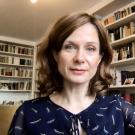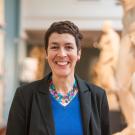Since his untimely death, Franz Kafka (1883-1924) has become a global phenomenon. Over the past century, every generation has discovered 'its' Kafka; across seismic shifts his texts have spoken to readers from all walks of life, as reflected during the Covid pandemic, when memes about Gregor Samsa trapped in his bedroom went viral. Both Kafka and his protagonists are often cast as isolated entities existentially disconnected from their surroundings. Kafka's Transformative Communities challenges this image by foregrounding a central but neglected aspect of his work: community. Community is a constant thread in Kafka's writings, from his earliest texts to his artistic testament, 'Josefine, die Sängerin oder Das Volk der Mäuse' (Josefine, the Singer or The Mouse-People) whose artist protagonist is defined by her (often strained) relationship with the collective. Our project uses Kafka's engagement with community as the springboard for a distinctive engagement with his texts, contexts and legacy. Over the past century his works have been received by countless 'interpretive communities' (Stanley Fish) across the globe, which have responded to his works in diverse, locally specific ways. In Kafka research, however, such collective responses are often sidelined, as the story of his afterlife tends to revolve around individuals - Borges, Derrida, Orson Welles - rather than collectives. Our project redresses this balance. Building on Fish's original concept, we put a particular emphasis on different 'creative communities', where textual interpretation is complemented by creative transformation.



